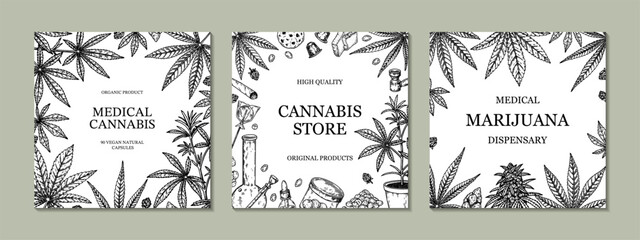
The growing social and economic impact of legalized cannabis throughout entire The State of New York.
New York state has legalized retail cannabis. It is now legal for adults over the age of 21 to use marijuana for recreational purposes; agricultural production, processing, and retail sales are permitted. The change is reverberating in social life, from the growing number of unlicensed stores and traffic accidents to heightened concern about the possible impact on health.
At Union Square Travel Agency, on 13th Street in Manhattan, customers chat with employees as they make their purchases in a refined interior reminiscent of an Apple Store. But this is not a travel agency or a computer store: it stocks cannabis and products derived from cannabis.
Retail cannabis was legalized in New York state in March of 2021 under Governor Cuomo. New regulations were crafted to permit the cultivation of cannabis and the manufacture and sale of cannabis products, and adults are now allowed to buy, own, and transport these products.
A primary aim of legalization is to address racial disparities. The majority of the people arrested for possession of small amounts of cannabis were members of minority groups such as black people and Hispanics.
“Despite similar cannabis usage rates between white consumers and black or minority consumers, minority consumers were many more times more likely to be prosecuted for cannabis offenses. Cannabis arrests or prosecutions have made it more difficult to get public housing or to get many jobs. Legalization is a way to address this social issue,” explains John Kagia, Director of Policy for New York’s Office of Cannabis Management.
The state of New York gave priority on marijuana retail licenses to minorities who have experienced cannabis arrests or convictions, and to organizations who support them. Union Square Travel Agency’s license is held by a nonprofit organization that provides job placement services and other aid to Black men with criminal histories.
The goal is to build up small businesses and increase state tax revenues. Paul Yau, Union Square Travel Agency’s CEO, says that the shop gets “more than 1,000 customers a day,” which hints at its contribution to NY’s tax coffers. Products include dried cannabis, joints, cannabis gummies, and concentrates. One joint costs about $10, and a package of gummies is about $30.
A 68-year-old white man, who was smoking marijuana on the sidewalk, explained the effect of cannabis legalization: “I don’t have to rush to buy on the black market anymore, so I don’t buy as much.”
But there are also problems. John Daviau, Director of State and Local Affairs for SAM, a nonprofit that lobbies against cannabis legalization, says that the rapid increase of illegal shops is a big issue.
There are currently only 23 licensed shops in New York State, but there are about 1500 illegal shops in New York City. Walk around Manhattan and you’ll see one on every block; it’s no exaggeration to say that unlicensed marijuana stores outnumber Starbucks locations.
The source of the marijuana used to make the products sold by these unlicensed outlets is unclear, so there’s a possibility they’re selling products containing dangerous adulterants. Package designs for gummies and other products resemble candy, creating a risk that children might consume them by mistake. State officials have begun to crack down on illegal shops, but they’re coming from behind. In October retail license applications will open to the general public, which should increase the number of licensed stores.
Jonathan Cook, drug and alcohol training coordinator for the New York State Troopers, says they’ve increased officer training to crack down on driving under the influence of cannabis. Driving while intoxicated with marijuana is illegal, just like driving drunk.
There are also concerns about health impacts. There’s a belief that cannabis is less dangerous than alcohol or drugs like heroin, but Dr. Rosalie Pacula, a professor at the University of Southern California, points out that technology has improved. The products on sale now “have a much higher ratio of active ingredients. They’re different from conventional cannabis.” She is concerned there may be as-yet-undiscovered health risks for young people, pregnant people, and others.
Mason Tvert was an activist who worked to legalize recreational cannabis in Colorado state, which was at the vanguard of legalization in the US; he now works at consulting firm VS Strategies. He says that the government should take the lead on advertising regulation and product safety control for cannabis, just as it does with tobacco and alcohol.
23 US states currently allow recreational marijuana use, but both medical and recreational consumption are still illegal at the federal level. Many banks will not provide financial services or credit card processing, even to stores that operate within state law.
But the federal government is moving toward legalization. At the end of September, the Senate Banking, Housing, and Urban Affairs Committee finalized a bill that would authorize banks to provide services to the cannabis industry. The bill is now awaiting approval in the House and Senate. If passed, providing banking services for the marijuana market, with its annual sales of $30 billion (about 4.45 trillion yen), will be legalized. By: Momoe Ban, New York